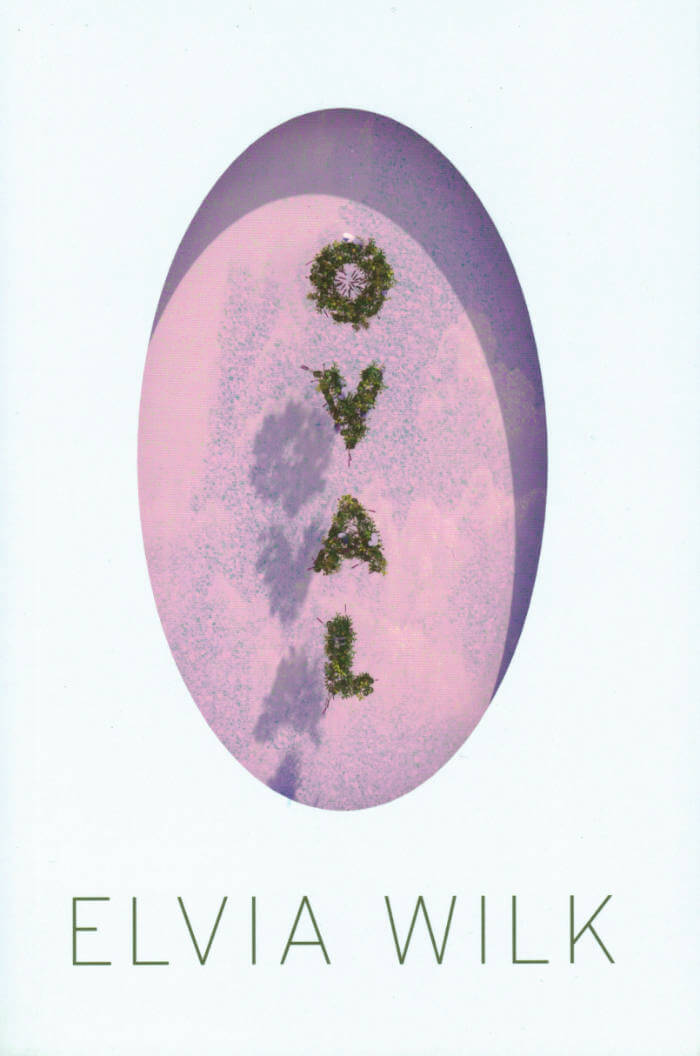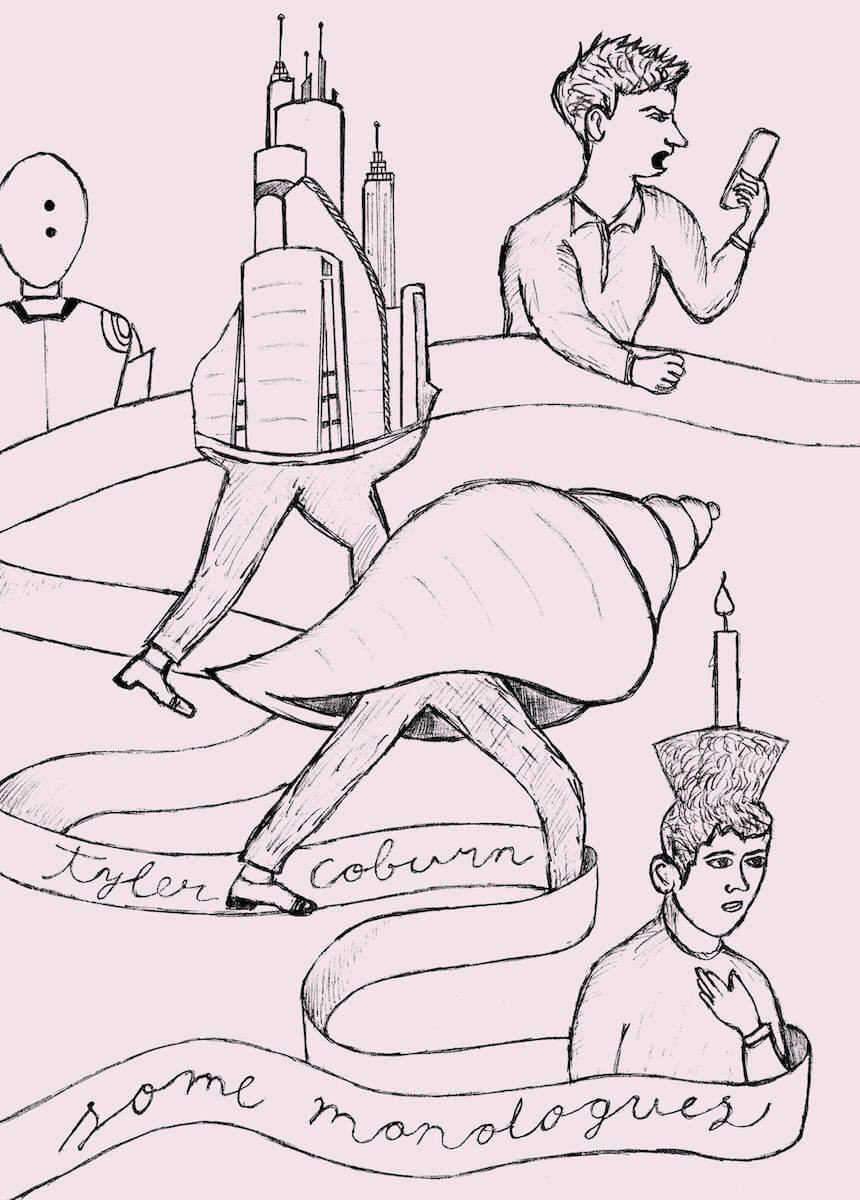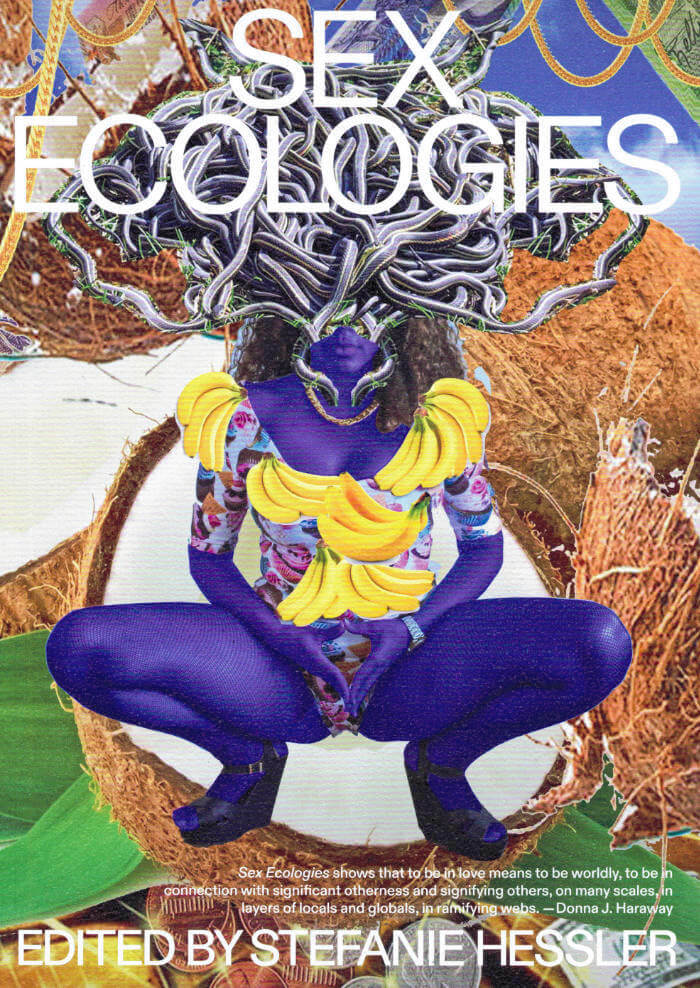Elvia Wilk
Elvia Wilk

Oval
In the near future, Berlin's real estate is being flipped in the name of "sustainability," only to make the city even more unaffordable; artists are employed by corporations as consultants; and the weather is acting strange. In search of affordable housing, young couple Anja and Louis move into a community on an artificial mountain, The Berg—yet another "eco-friendly" initiative run by a corporation called Finster. They're offered a home rent-free in exchange for keeping quiet about the seriously malfunctioning infrastructure of the experimental house. But when Louis returns home from his mother's funeral in America, Anja is convinced he has changed. He seems to be in denial of his grief and newly idealistic, consumed by a secret project at the NGO where he works as an artist-consultant. Anja is horrified when she discovers what Louis has invented: a pill called Oval that temporarily rewires the user's brain to be more generous. Louis is convinced that if he can introduce the drug into the Berlin club scene, he can finally remedy the income disparity that has made Berlin so unlivable.
Oval is a fascinating portrait of the unbalanced relationships that shape our world, as well as a prescient warning of what the future may hold.
Elvia Wilk is a writer and editor living in New York and Berlin. She writes about art, architecture, and technology for several publications, including frieze, Artforum, e-flux, Metropolis, Mousse, Flash Art, Art in America, and Zeit Online.

Death by Landscape
From the acclaimed author of the novel Oval comes a book of "fan nonfiction" about living and writing in the age of extinction.
In this constellation of essays, Elvia Wilk asks what kinds of narratives will help us rethink our human perspective toward Earth. The book begins as an exploration of the role of fiction today and becomes a deep interrogation of the writing process and the self.
Wilk examines creative works across time and genre in order to break down binaries between dystopia and utopia, real and imagined, self and world. She makes connections between works by such wide-ranging writers as Mark Fisher, Karen Russell, Han Kang, Doris Lessing, Anne Carson, Octavia E. Butler, Michelle Tea, Helen Phillips, Kathe Koja, Jeff and Ann VanderMeer, and Hildegard von Bingen.
What happens when research becomes personal, when the observer breaks through the glass? Through the eye of the fan, this collection delves into literal and literary world-building projects—medieval monasteries, solarpunk futures, vampire role plays, environments devoid of humans—bridging the micro and the macro and revealing how our relationship to narrative shapes our relationships to the natural world and to one another.
And more

Some Monologues
Working at the nexus of performance, art writing, and fiction, Tyler Coburn creates monologues that explore how the “I” is marked in speech. His myriad topics—alternate history, legal personhood, digital labor, and resonant frequency, to name a few—defy straightforward modes of presentation, often insisting on site-specificity and social intimacy at the expense of conventional documentation.
Some Monologues collects, for the first time, the scripts of Coburn’s work from the past fifteen years, many of which have not previously been published. Accompanying them are texts by eleven artists, writers, curators, and scholars who experienced these performances firsthand, collaborated in their making, conversed with the artist about them, or share an interest in the subjects they engage. Written in theoretical, poetic, and autobiographical registers, these contributions offer new perspectives on the monologue as an expansive and relational form.
Introduction by Elvia Wilk. Contributions by Yu Araki, A.E. Benenson, Mashinka Firunts Hakopian, Sven Lütticken, Kameelah Janan Rasheed, Spyros Papapetros, Camille Richert, Théo Robine-Langlois, Ian Wallace, and Michelle Wun Ting Wong.
Tyler’s scripts refuse to fix an authorial voice; instead, they make the conditions of authorship itself their subject. Blurring the boundaries between fiction and document, the human and the bureaucratic, the self and its doubles, his work thinks through systems from the inside, often using language as both architecture and trap. In their precision and porousness, I recognize a shared pursuit: how to locate agency within constraint, and how to turn the administrative or the technological into a site of intimacy. — Jill Magid
In Tyler Coburn’s Some Monologues, a binary that remains constitutive for the ideological continuity of modern life, in all its colonial and capital forms, is undone: digital vs. physical. In troubling that chasm, Coburn plays out the repercussions of these ideologies of anthropomorphic naturalism, guiding us through their resonances, doubles, codings, and relays. But he also renders himself as the relay of these transferences, in the process expanding art’s premodern calling: to exist as an invocation. Reification suddenly appears as what is situated between embodiment and disembodiment, with both potentially destabilized. Some Monologues, the book, is this destabilization’s ideal format: as much documentation, an echo, of Coburn’s works through their scripts, as it is an instruction manual for denaturalizing our sense/s. — Kerstin Stakemeier
Tyler Coburn is an artist, writer, and professor based in New York. He received a 2024 Andy Warhol Foundation Arts Writers Grant, and his writing has appeared in ArtReview, BOMB, C Magazine, Dis, e-flux journal, frieze, LEAP, Metropolis M, Mousse, and Rhizome. Coburn is the author of four books: I’m that angel (self-published, 2012), Robots Building Robots (CCA Glasgow, 2013), Richard Roe (Sternberg, 2019), and Solitary (Sternberg and Art Sonje Center, 2022). He has presented artwork at such venues as Centre Pompidou, Paris; Bergen Kunsthall; Hayward Gallery, London; Para Site, Hong Kong; and Kunstverein Munich.

Meriem Bennani: Life on the Caps
Meriem Bennani's Life on the CAPS is the final chapter in her film trilogy of the same name. Set in a supernatural, dystopian future surrounding a fictional island in the middle of the Atlantic Ocean, it is rooted in Bennani’s research and reflections on the histories of island societies, biotechnology, and vernacular music. Layering live-action footage and computer-generated animation, Bennani intuitively adapts editing techniques that evoke documentary film, science fiction, phone footage, music videos, and reality TV. Her one-person exhibition at the Renaissance Society marked the debut of this personal, electric yet melancholic consideration of what it is to live in a state of limbo, and this accompanying book captures the film through a combination of still images and selections from a transcript of the film.
This volume includes essays by Emily LaBarge and Elvia Wilk and transcripts of conversations between Meriem Bennani and: Omar Berrada; Fatima Al Quadiri, Negar Azimi, and Tiffany Malakooti; Amal Benzekri; and Aziz Bouyabrine.

Twenty Terrifying Tales from our Techno Feudal Tomorrow
William Kherbek’s Twenty Tales from our Technofeudal Tomorrow are of course twenty tales from our technofeudal today. From the software company to the art gallery to the prison to the nature park, here is our scary, scary world as seen through the Kherbekian filter: colors pushed to full saturation, soundtrack ramped up to eleven, video played at 1.1x speed. Luckily, the terror of true realism is laced with wild insights, and the acerbic critique is mercifully cut with Kherbek’s signature raucous hilarity.
"Read this book for its political sagacity and wit, but also for its linguistic extravagance, its jubilant play on every word you thought you knew — down to the last punctuation mark. It’s the kind of funny that makes you smack yourself on the forehead. (But as always, as one character reminds, “keep one hand free for rose.”) We can only hope that some CEO does not pick this book up and take it as an instruction manual." – Elvia Wilk, author of Oval
"Kherbek’s ruthless, dystopian future bears an uncanny resemblance to present-day office politics. Twenty Terrifying Tales from Our Technofeudal Tomorrow is a book that, in true Swiftian style, is written “to vex the world rather than divert it.” – Susan Finlay, author of My Other Spruce and Maple Self

Sex Ecologies
Sex Ecologies explores pleasure, affect, and the powers of the erotic in the human and more-than-human worlds. Arguing for the positive and constructive role of sex in ecology and art practice, these texts and artistic research projects attempt nothing short of reclaiming the sexual from Western erotophobia and heteronormative narratives of nature and reproduction. The artists and writers set out to examine queer ecology through the lens of environmental humanities, investigating the fluid boundaries between bodies (both human and nonhuman), between binary conceptions of nature as separate from culture, and between disciplines.
In newly commissioned texts from such writers as Mel Y. Chen and Jack Halberstam and a selection of influential essays—including an annotated version of Audre Lorde's “The Uses of the Erotic: The Erotic as Power”—as well as images and sketches from works in progress by a diverse group of artists, Sex Ecologiescombines insights from the fields of art, environmental humanities, ecofeminism, gender studies, science, technology, political science, and indigenous studies.
Sex Ecologies, which accompanies an exhibition of the same name at Kunsthall Trondheim, emerges from an arts-driven research project collaboratively developed between the art center and the Seed Box environmental humanities collaboratory. Conceived not as a result but as a seed arising from this transdisciplinary fertilization, the volume presents a case for the role of sex in environmental and social justice.
Contributors:
Katja Aglert,Tarsh Bates, adrienne maree brown, Mel Y. Chen, Pauline Doutreluingne, Léuli Eshrāghi, Jes Fan, Ibrahim Fazlic, Jack Halberstam, niilas helander, Stefanie Hessler, Jenny Hval, Anne Duk Hee Jordan, Jessie Kleemann, Audre Lorde, Nina Lykke, Montserrat Madariaga-Caro, Camila Marambio, Astrida Neimanis, Pedro Neves Marques, Okwui Okpokwasili, Marie Helene Pereira, Margrethe Pettersen, Laure Prouvost, Filipa Ramos, Catriona Sandilands, Sami Schalk, Serubiri Moses, Leanne Betasamosake Simpson, Annie Sprinkle and Beth Stephens, Kim TallBear, Anna Tje, Alberta Whittle, Victoria Wibeck, Elvia Wilk
Copublished with Kunsthall Trondheim (Norway) and the Seed Box (Sweden)